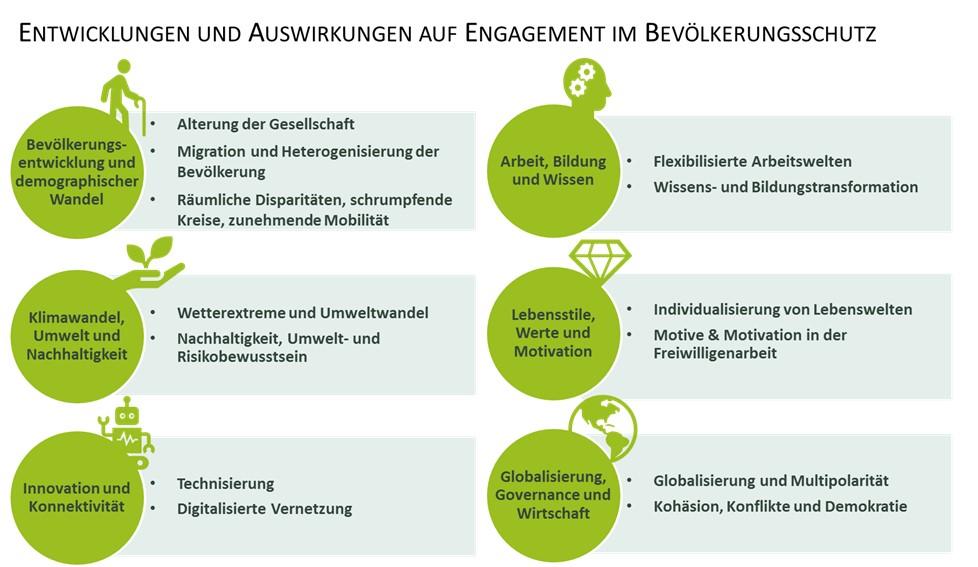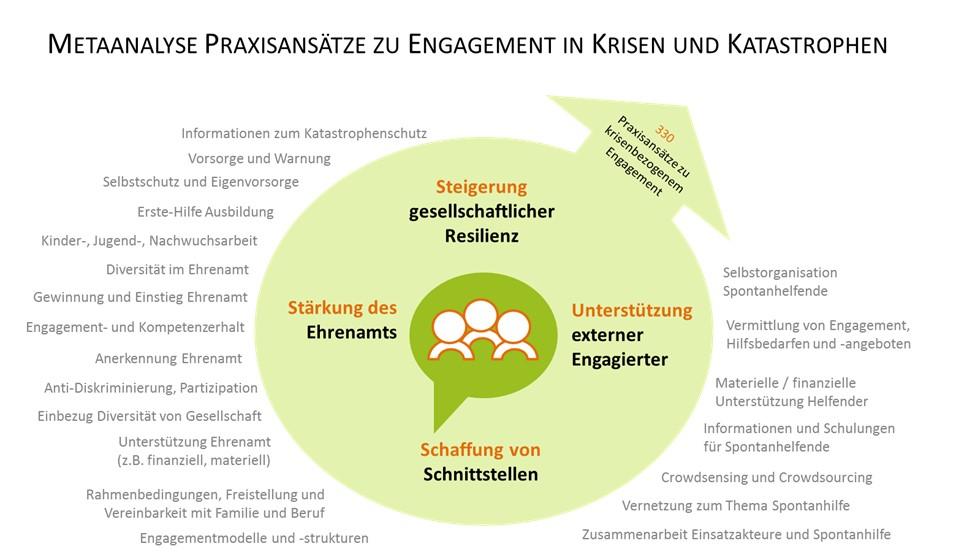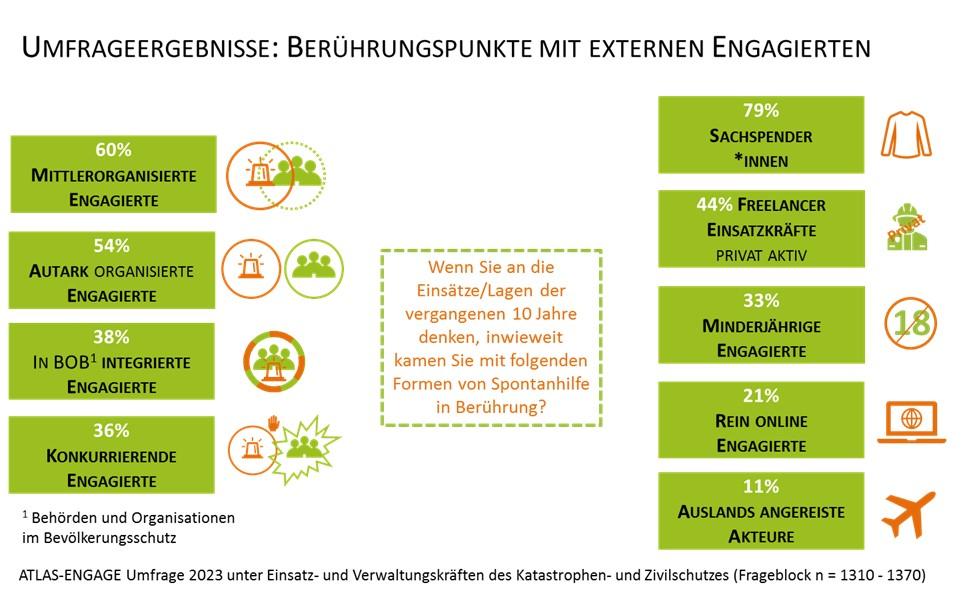ATLAS-ENGAGE Closing Event: From Research Results to Practical Insights
News from Sep 20, 2023
On September 14, 2023, the final event of the project ATLAS-ENGAGE "Atlas of Civil Society Engagement in Population Protection – Societal Change and Involvement in Authorities and Organizations with Security Tasks" took place with about 80 participants from emergency organizations, authorities of different levels, civil society and science.
After a welcome and contextualization of the project by the Federal Office for Civil Protection and Disaster Assistance (BBK) and the Federal Agency for Technical Relief (THW), Professor Martin Voss outlined complex societal conditions that challenge population protection in general - as well as the field of volunteering in particular - to adapt and orient itself towards the future.
In the first thematic block, Theresa Zimmermann presented the results of a societal trend analysis on (possible) changes and effects on volunteering in crises, especially organization-based volunteering. She addressed changes in the protection architecture as well as megatrends such as 1) population development and demographic change, 2) climate change, environment and sustainability, 3) innovation and connectivity, 4) work, education and knowledge, 5) lifestyles, values and motivation, and 6) globalization, governance and economy. Changing hazard situations must also be taken into account - because, for example, long-lasting, parallel, complex and large-scale operations place very special and high demands on volunteer emergency forces and their capacities.

© Disaster Research Unit 2023
In the second block, Sara T. Merkes explained the results of a meta-analysis of 70 national and international research projects on crisis engagement and of some 330 practical approaches to volunteering in population protection contexts.

© Disaster Research Unit 2023
Building on the merged findings of the meta-analysis, a typology and profiles of forms of participation in crises and disasters developed in ATLAS-ENGAGE were presented. Criteria for cooperation requirements were also discussed. The typology, the profiles and the compiled cooperation requirements aim to provide authorities and organizations in population protection with a concrete basis for the development of strategies for dealing with diverse forms of involvement in the management of crises and disasters.
The results of a survey make it clear that emergency response and civil defense administrators are in touch with multiple forms of engagement outside of population protection agencies and organizations.

© Disaster Research Unit 2023
In another thematic block, the German Red Cross presented a practical guide for dealing with different forms of engagement in the German Red Cross and addressed volunteering opportunities along the previously presented typology from ATLAS-ENGAGE.
Finally, Theresa Zimmermann summarized the recommendations for action developed on the basis of the project results and explained possible strategies along the lines of overarching cooperation, integration, networking and communication for dealing with those engaged outside of population protection agencies and organizations.
The project results will be published here in the coming months.